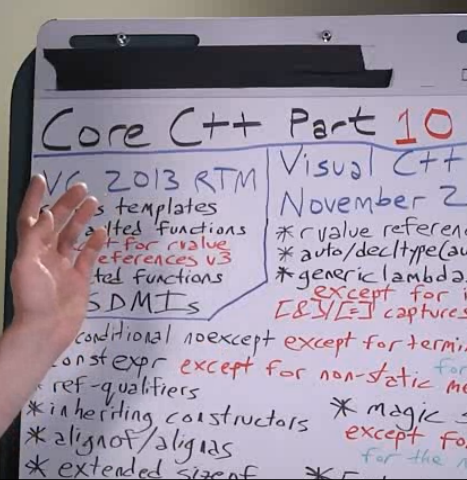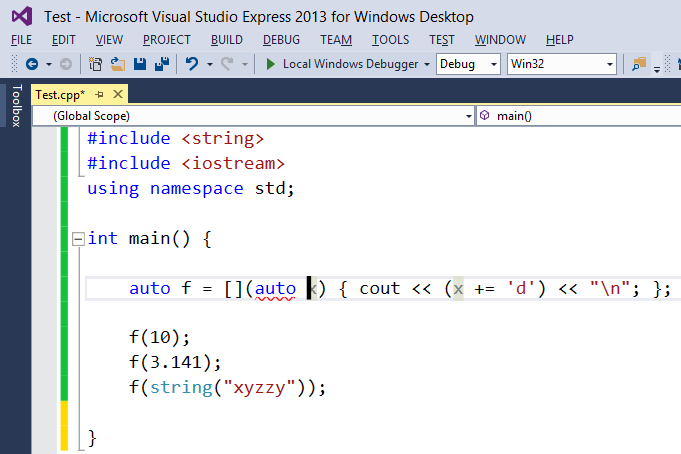Basic Structure of C++ Program -- Prashant Sharma
[Ed.: This is a simple short "hello world" overview for someone starting to program in C++, and is basically correct. There are lots of expert-friendly articles, but we like and want to encourage the beginner- and intermediate-level articles as well for the benefit of the many recent newcomers to the language.]
Basic Structure of C++ Program
The easiest way to understand the basic structure of C++ program is by writing a program. The basic C++ program is as follows: ...

 For the first time in several years, Bjarne Stroustrup and Herb Sutter will hold a two-day seminar on C++
For the first time in several years, Bjarne Stroustrup and Herb Sutter will hold a two-day seminar on C++ What is this "type erasure" thing you speak of? It's not something at the other end of a pencil (remember those?) but a way to hold an object without knowing its exact type. Andrzej explains:
What is this "type erasure" thing you speak of? It's not something at the other end of a pencil (remember those?) but a way to hold an object without knowing its exact type. Andrzej explains: Accompanying today's release of the
Accompanying today's release of the  Microsoft has announced a new Visual C++ Compiler CTP (Community Technology Preview):
Microsoft has announced a new Visual C++ Compiler CTP (Community Technology Preview): A new stable release of
A new stable release of